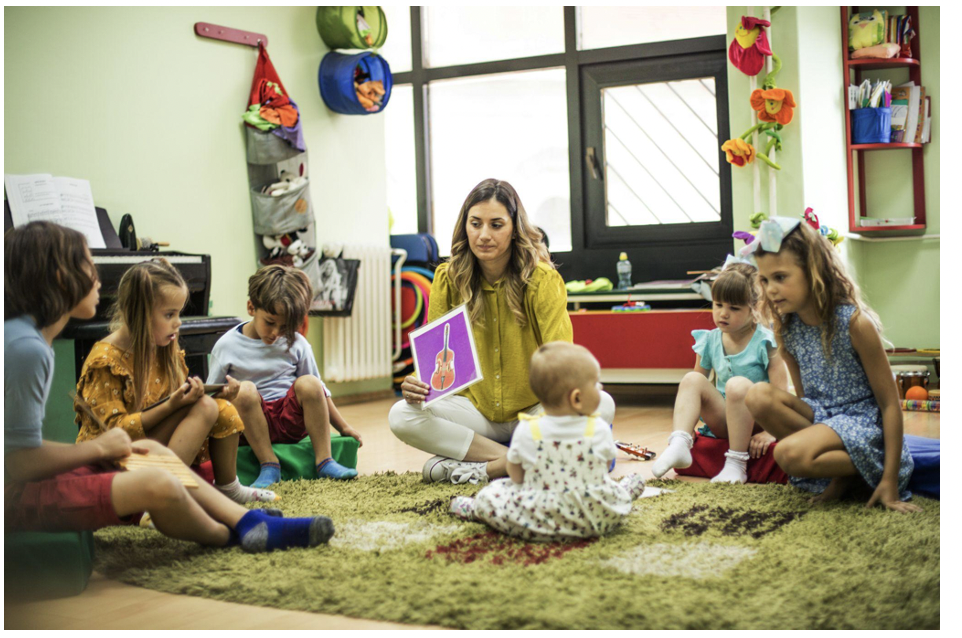How to Evaluate Child Care Centers Near Me

Finding the right childcare center is a crucial decision for any parent. With so many options available, it can be overwhelming to determine which one is best for your child. In this post, you'll learn how to evaluate childcare centers near you by considering key factors like safety, curriculum, and staff qualifications. By the end of this guide, you'll have a clearer understanding of what to look for in a childcare center, helping you make an informed decision that meets your family's needs.
Safety and Cleanliness
When it comes to evaluating child care centers, the first and most crucial aspect to consider is safety. As a parent, you want to ensure that your child is in an environment where they can explore and learn without unnecessary risks. During your visits to different centers, take note of how secure the premises are. Look for features like secure entrances, gates, and childproofing measures such as covered electrical outlets and locked cabinets.
Cleanliness is equally important in a childcare setting. A clean environment reduces the risk of illness and helps create a more comfortable space for your child. Ask about the center’s cleaning protocols: How often are toys and surfaces sanitized? Is there a routine for deep cleaning? Also, pay attention to the general appearance of the space. A tidy, well-organized center is often a sign of a well-managed facility.
By prioritizing safety and cleanliness, you can narrow down your options to centers that are truly committed to providing a secure and healthy environment for your child.
Curriculum and Educational Philosophy
Beyond safety, the curriculum and educational philosophy of a childcare center play a significant role in your child's early development. Different centers may follow various approaches, such as Montessori, play-based, or structured academic programs. Understanding these philosophies can help you choose a center that aligns with your child's learning style and your family's values.
When evaluating child care centers near you, it's essential to ask about their curriculum. Does the center focus on academic readiness, or is the emphasis on social and emotional development? A well-rounded curriculum should incorporate elements of both, ensuring that children develop cognitive skills while also learning to interact with peers.
Additionally, consider how the curriculum is delivered. Are activities age-appropriate? Is there a balance between structured learning and free play? Play is crucial at this stage, as it fosters creativity, problem-solving, and social skills. A center that values play as part of its educational philosophy often provides a more nurturing and engaging environment for young children.
Staff Qualifications and Ratios
The quality of care your child receives is directly linked to the qualifications and experience of the childcare staff. When visiting centers, take the time to inquire about the qualifications of the caregivers. Ideally, the staff should have formal training in early childhood education, along with experience working with children in the age group your child falls into. Qualified staff members not only understand developmental milestones but are also equipped to handle various situations that might arise in a childcare setting.
Another critical factor to consider is the staff-to-child ratio. The number of children each caregiver is responsible for can significantly impact the level of attention and care your child receives. Lower ratios are generally better, as they allow for more personalized attention and support. Regulations on these ratios can vary, but a good rule of thumb is that younger children, especially infants and toddlers, should have more caregivers per child.
When you visit a center, observe how the staff interacts with the children. Do they seem engaged, patient, and attentive? These observations, combined with the staff's qualifications and the center's adherence to appropriate ratios, can give you confidence in the level of care your child will receive.
Communication and Parent Involvement
Effective communication between parents and childcare providers is essential for your child’s success and well-being. When evaluating child care centers, consider how they keep parents informed about their child's daily activities, progress, and any issues that may arise. Regular updates, whether through daily reports, newsletters, or parent-teacher meetings, are crucial for staying connected with your child's development.
In addition to communication, parent involvement plays a vital role in your child's early learning experience. Some centers actively encourage parents to participate in activities, events, or volunteer opportunities. This involvement not only helps you stay engaged with your child's education but also fosters a sense of community within the center.
Ask potential childcare centers how they involve parents in the learning process. Do they have an open-door policy? Are there opportunities for you to contribute ideas or feedback? Centers that value and facilitate parent involvement often create a more supportive and collaborative environment for children and their families.
Reviews, Recommendations, and Visits
Before making a final decision on a childcare center, it’s essential to gather as much information as possible from multiple sources. Start by reading online reviews from other parents in your area. While no place will have a perfect track record, consistent positive feedback about a center's environment, staff, and programs is a good sign. Conversely, pay attention to any recurring negative comments that might signal potential issues.
In addition to online reviews, seek recommendations from friends, family, or other parents in your community. Personal experiences can provide valuable insights that you might not find online. Hearing directly from someone you trust about their child’s experience can help guide your choice.
Finally, visiting the childcare centers you’re considering is crucial. Schedule tours to see the facilities firsthand, meet the staff, and observe the children in their daily routines. During your visit, trust your instincts. Pay attention to how the environment feels—are the children happy and engaged? Does the center feel welcoming and well-organized? These visits will help you identify any red flags and confirm whether a center meets your expectations.
Conclusion
Choosing the right childcare center is a significant decision that requires careful consideration. By evaluating centers based on safety, curriculum, staff qualifications, communication, and feedback from others, you can confidently select a place where your child will thrive. Remember, the right childcare center will not only meet your child's needs but will also provide you with peace of mind, knowing they are in a nurturing and supportive environment.






